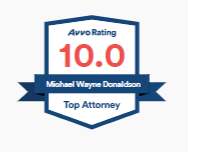Navigating Writs and Appeals in the Southern California Legal System
Want to appeal a conviction or file a writ but don’t know where to begin?
We at Gressley & Donaldson LLP know how daunting it can feel trying to navigate California’s writs and appeals process. That is why we are here to help. Book a consultation today to speak with one of our lawyers about your case.
Our Appeal Services
If you can appeal a misdemeanor charge in Murrieta, it’s crucial to engage the services of a misdemeanor appeals attorney. With their expertise in misdemeanor appeals, they can offer legal guidance and representation to effectively navigate the appeals process.
To explore options for appealing a felony conviction, it’s crucial to engage the services of a Murrieta felony appeals attorney. With their expertise in handling felony appeals, they can provide invaluable legal representation throughout the appeals process.
Seeking assistance from a Murrieta writ of mandamus lawyer is crucial if you require representation for a DMV petition for a writ of mandamus hearing. With their expertise in writ of mandate cases will drastically increase your chances of getting your license back!
Seeking the expertise of a Murrieta habeas corpus lawyer is crucial if you’re unlawfully imprisoned and considering filing a habeas corpus petition. With their specialized knowledge in habeas corpus cases, they can provide invaluable legal assistance to challenge the legality of your confinement.
Enlisting the assistance of a Murrieta lawyer for wrongful convictions is essential if you’ve been wrongfully convicted and seek exoneration. With their expertise, they can provide invaluable legal support to challenge the wrongful conviction and work towards achieving exoneration.
Understanding Writs and Appeals
Before we explain how to file writs and appeals in California, it’s important to understand that if you wait too long, you may be out of luck.
Writs and appeals are time sensitive. An experienced appellate lawyer will be well-versed in the deadlines for filing. If you miss the deadline to file a notice of appeal, for example, you will not be able to appeal at all. Writs have similar deadlines, which may vary depending on the facts and circumstances.

Habeas Corpus
Every person is entitled to justice. If you or someone you know wants to challenge a conviction, reach out to Gressley & Donaldson LLP to get the legal representation you deserve.
If you have ever watched a courtroom drama, it is likely you’ve heard these words, but what is habeas corpus? Deriving from a Latin phrase meaning “you shall have a body,” habeas corpus refers to an order that the confined person should be brought to the court. If applicable, habeas corpus allows you to challenge an order or judgment by filing a petition.
So, how do you file a habeas corpus petition in California? One way is to file Form MC-275 and explain why your incarceration is unlawful. Or an appellate attorney can file a petition for writ of habeas corpus on your behalf. Since this is a serious and complicated endeavor, whenever possible, incarcerated individuals should employ an appellate attorney to prepare and file the petition for writ of habeas corpus on their behalf.
Unlike appeals, writs are discretionary (the appellate court does not need to hear them) and they can be complicated. If you are considering filing a petition for writ of habeas corpus but don’t know where to begin, contact Gressley & Donaldson, LLP to review your options. A knowledgeable attorney can advise you on the right course of legal action.

Contact Us for Your Case Evaluation
Our dedicated team is here to provide the support and guidance you need, when you need it most.
Wrongful Convictions
Being wrongfully convicted of a crime you did not commit is devastating. The toll it can take on you and your family is immeasurable, which is why we at Gressley & Donaldson LLP want to help. Call us today to determine your options to fight back against this breach of justice.
As the name suggests, a wrongful conviction occurs when someone is found guilty of a crime they did not commit. Wrongful convictions occur for a myriad of reasons, including inaccurate eyewitness testimony, police or prosecutorial misconduct, racial bias, forensic error, false confessions, erroneous jury instructions, and more. Wrongful convictions are contrary to everything our justice system stands for, which is why wrongful conviction lawyers are so important.
If you or someone you know has been wrongfully convicted, contact Gressley & Donaldson LLP. to speak with one of our wrongful conviction attorneys today.

Misdemeanor Appeals
Sentencing for misdemeanor offenses happens every day, but can you appeal a misdemeanor conviction? The short answer is yes, under the right circumstances. Misdemeanor appeals are filed when the convicted person feels they did not receive a fair or just trial. Also, misdemeanor appeals are often filed if a judge denies a motion to suppress evidence under Penal Code section 1538.5 at some point during the case, and the person is later convicted.
In California, appeals from guilty pleas in misdemeanor cases sometimes occur, especially when the appeal challenges the denial of suppression motion. When someone pleads guilty to a misdemeanor, they may waive the right to appeal. Attorneys specializing in misdemeanor appeals can provide the necessary insight and guidance to help you appeal a misdemeanor conviction.
The following is a simplified step-by-step example of the misdemeanor appeals process in California:
- The convicted person files a notice of appeal that sets forth what they are appealing. This must be filed in the trial court within 30 days of conviction in a misdemeanor case.
- Once filed, the appellant (person appealing) must file a notice regarding the record to ensure that the record on appeal is prepared in accordance with the rules.
- The appellate court will notify the appellant after the record is filed, and appellant will have 30 days to file the opening brief. The prosecution will also have the opportunity to file what’s called a “respondent’s brief” within 30 days after the appellant’s opening brief is filed. Appellant will then have 20 days to file a reply brief.
- The appellate court will review the record and the briefs, and will schedule oral argument.
- If the appellant wins, the court will reverse the conviction (sometimes in part, or modified) and send the case back to the trial court with certain orders in accordance with the appellate court’s opinion.
Misdemeanor appeals are heard in the Superior Court appellate division. Again, a defendant has 30 days after conviction to file the notice of appeal. If that is not done, the appeal is forfeited.
Having a lawyer to help you in your misdemeanor appeals process is invaluable. Contact Gressley & Donaldson to get the legal representation you deserve. If you are charged with resisting arrest you need to explore and understand possible defenses. They may apply to your case. People accused of resisting arrest have several legal defenses to consider:
Felony Appeals
A felony conviction in California can be ruinous. From formal probation and jail to a potential prison sentence, the consequences can be permanently life-altering. For these reasons, you may be questioning whether you should appeal your felony conviction. At Gressley & Donaldson, LLP, we can help you determine whether a felony appeal is right for you.
In California, if someone is convicted of a felony but believes an error occurred during their trial, they have the right to file appeal the conviction. This means the convicted person can challenge the court’s decision and have the Court of Appeal (a higher court than the Superior Court) decide whether there were errors that require reversal.
All felony appeals in California must be based on valid grounds. These include evidentiary ruling errors by the trial court, insufficient evidence, juror misconduct, prosecutorial misconduct, erroneous jury instruction, and more.
Filing a felony appeal is similar to the misdemeanor appeals process:
- The appellant (person appealing) must file a notice of appeal with the trial court. For a felony, the defendant has 60 days to file the notice.
- The record will then be prepared, consisting of a Clerk’s Transcript that includes all the pleadings filed with the court and other documents, and a Reporter’s Transcript that includes the transcript of all oral proceedings from court.
- The appellant will then submit the opening brief detailing their arguments on appeal. The prosecution will submit a respondent’s brief. The appellant can then file a reply.
- Oral argument will then be scheduled.
- After the case is submitted, the Court of Appeal will either affirm the conviction, reverse it, or the court might remand the case back to the trial court for modification of judgment. A remand means further proceedings or a retrial is needed.
- Also, the losing party is entitled to file a petition for review in the California Supreme Court.
Appealing a felony conviction in California can feel overwhelming. With the right guidance, it doesn’t have to be. Call Gressley & Donaldson LLP. to speak with a seasoned appellate lawyer who can help you with your felony appeal.
Writ of Mandamus
A writ of mandamus is a court order issued by a higher court legally requiring a government agency to perform an act. A petition for writ of administrative mandamus, for example, is filed to review the decision by the DMV to suspend a person’s license after an administrative per se hearing.
The attorneys at Gressley & Donaldson, LLP have filed many petitions for writ of administrative mandamus against the DMV and have had success. These petitions are complex, difficult, and time consuming. Call Gressley & Donaldson, LLP if you have lost your license and would like to challenge the DMV’s decision.


Contact Us for Your Case Evaluation
Our dedicated team is here to provide the support and guidance you need, when you need it most.
The Appellate Process in California
As much as our justice system strives for perfection, juries and courts can and do make mistakes. This is why California has the appellate process. It ensures that, if an error does occur, justice can still be pursued. You don’t have to navigate the appellate process alone; book a consultation with one of Gressley & Donaldson, LLP’s appeals lawyers today.
The appellate process in California hinges upon the belief that a miscarriage of justice has occurred. If a defendant feels their trial was conducted unfairly, they have the right to appeal. This does not mean a case will go to retrial. Instead, a review of the court proceedings, including the final sentence, occurs to determine if they were conducted in accordance with the law.
If you have been convicted of a crime but believe your case was handled unfairly, you may want to speak to an attorney about appealing. Reach out to Gressley & Donaldson LLP. to explore all your options.

Strategies for a Successful Appeal
Appealing a criminal conviction can be daunting. The appellant process is complicated, and gathering the required evidence can be time-consuming. Below are a few strategies and tips for a successful appeal.
- Legal Assistance: Having an appeals attorney is an excellent strategy for a successful appeal. From making deadline requirements to writing strong briefs, an experienced lawyer is invaluable in successfully navigating the appellant process.
- Get Informed: Besides legal assistance, knowledge is another important strategy. Understanding the standards of review, the relevant legal terminology, how the appellant process works, what to expect, and how to conduct yourself will only help your appeal.
- Write a Strong Brief: Briefs are where you can really make your case. For this reason, be clear, concise, and precise in your writing. Write with confidence. Remember that you have a point to make and get to it.
- Know and Make Your Deadlines: The appellant process has many deadlines, all of which you need to know and adhere to. Missing a deadline could result in the loss of your right to appeal. Plus, tardiness communicates a lack of care and prioritization, something you want to avoid at all costs.
You can employ myriad strategies when appealing your conviction. A strong appeals lawyer will help you determine which is right for your case. Book an appointment with Gressley & Donaldson, LLP to explore the myriad appeal strategies.
Is a Writ Appropriate in Your Case?
One of the more confusing aspects of the legal system is knowing when to file a writ, an appeal, or both. This begs the question: What is the difference between a writ and an appeal in California?
The main difference between an appeal and a writ is that an appeal (if taken within the prescribed time-period, and if permitted by statute) is mandatory. That means the appellate court must hear the merits of your appeal. A writ may be available as a possible remedy for an unlawful order by the trial court, but the appellate court has discretion to hear it on the merits or summarily deny it and not hear it at all.
Figuring out whether an appeal or a writ is the proper remedy takes time and specialized knowledge. Speak with an appellate lawyer at Gressley & Donaldson, LLP to determine whether you should appeal, or file a writ.
How Writ Petitions Are Used in California Appeals
Writs serve an important purpose. They allow a person to challenge a trial court order or ruling sometimes even when a conviction has not yet occurred. They also allow one to sometimes go outside the record on appeal to prove that a constitutional violation occurred.
There are many different kinds of writs in California, but the most commonly used writ petitions are:
- The writ of mandate: A writ of mandamus, or mandate, is an order from a higher court to a lower court requiring legal action. Legal orders that are subject to a writ of mandate include a denial of a motion to continue, a denial of a discovery motion, and a denial of a motion for diversion. This writ usually must be filed within 30 days of the order in a misdemeanor and 60 days of the order in a felony.
- The writ of habeas corpus: This writ is a petition to evaluate whether a person’s confinement is legal. A defendant can only file a writ of habeas corpus when they are in custody or have similar restraints (jail, prison, facility, holding center, parole, probation, released on bail, etc.) and have no other legal option or recourse available to them.
- The writ of prohibition: Like a writ of mandate, a writ of prohibition is a juridical order from a higher court to a lower court. However, it stipulates the cessation of interference from the lower court in a trial being handled or examined by the higher court. This can be due to the lower court’s lack of jurisdiction. Legal orders that are subject to a writ of prohibition include a denial of a motion to dismiss due to statute of limitations violation or speedy trial rights violation, a denial of a 995 motion, or some other order that if it were granted instead of denied ends the action against the defendant. Most writs include both issues and are filed as a petition for writ of mandate or prohibition.
Like appeals, writs in South California are a fundamental part of the justice system. Knowing which to file is crucial. We at Gressley & Donaldson, LLP can help you determine whether a writ is right for your case.

Discuss Your Case Confidentially
Do you still have questions? Below are answers to some frequently asked questions. If there is anything else you are unsure about, contact us online at Gressley & Donaldson LLP. We are here to help.
the only riverside county criminal defense, dUI defense and appeals firm awarded the “super lawyers” designation
Gressley & Donaldson is the only Criminal Defense, DUI defense, and Appeals firm in Riverside, Murrieta, and Temecula to be awarded a Super Lawyers designation. Super Lawyers only awards this designation to Criminal Defense and DUI attorneys that demonstrate excellence among their peers.




DUI, criminal defense & appeals case results

contact us to start building your defense
We understand that being accused of a crime is one of the most challenging times of your life. Rely on us to advocate for your rights and to give you the defense you deserve.

